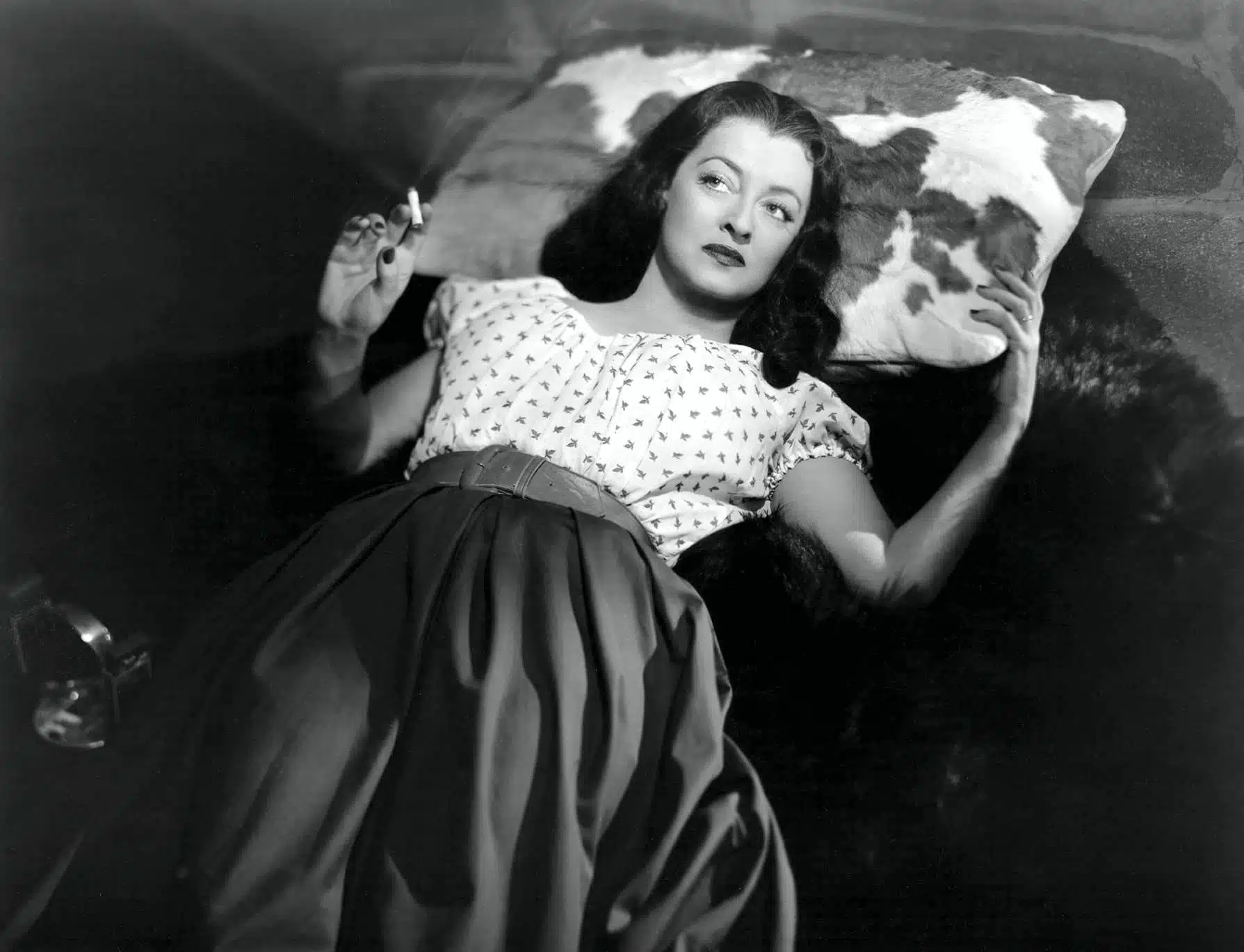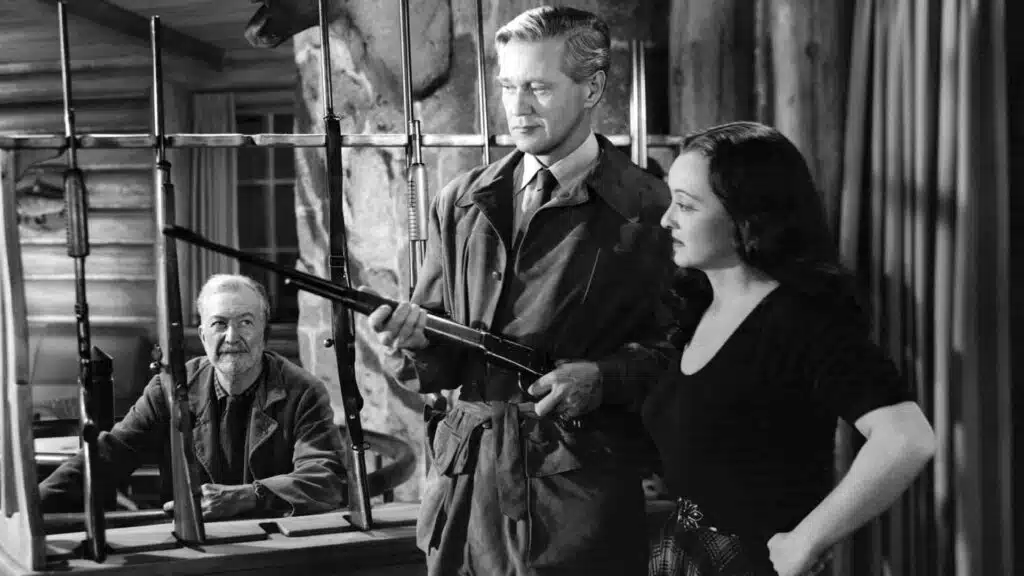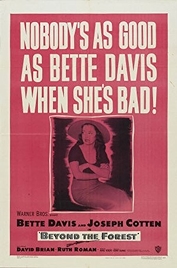“Nobody’s as good as Bette when she’s bad!” screamed the posters for this 1949 melodrama starring, of course, Bette Davis. But bad how? The latest of a run of flops for Davis when it was released, Beyond the Forest allowed Jack Warner to offload the star who’d made him fistfuls of money for 18 years. Good riddance to you too, said Bette, who’d wanted out anyway. Or so she said.
It’s a madly overcooked affair from the outset, with a rolling written introduction after the opening credits insisting that this is a grim but necessary portrait of evil and its rewards and ending with a metaphor about a “scorpion in a mad fury” stinging itself to “eternal death”.
Needless to say, it’s Davis as the scorpion, a Madame Bovary figure who hates living in the small burg of Loyalton, Wisconsin, and yearns for worldly goods, a life in the big city and the arms of a man less meek and selfless than her universally loved doctor husband, Lewis (Joseph Cotten).
Salvation and damnation come in the shape of millionaire Neil Latimer (David Brian), who occasionally flies into the area on his own seaplane. Rosa (Davis) has been having an affair with him for a while and would dearly like to move the relationship to the next level, Latimer being the single solution to all problems material, parochial and matrimononial.
And that’s about it – the good doctor, the millionaire and Rosa, while skulking about between them, her Indian housemaid, Jenny (Dona Drake), plus Moose (Minor Watson), the good-natured local drunk who organises hunting and fishing expedition and is the connection to “normal folks”.
Between this small group a tragedy will be worked up which involves Rosa eventually stinging herself to eternal death, having flung herself first at Neil, only to be rejected, before he throws himself back at her, for reasons which are just hinted at – she’s the only one who can give him sexually what he wants (a tough time).
But back to Rosa, a character so wildly, flamboyantly malign – and Davis does not hold back – that it is impossible to understand why the doctor stays with her or why anyone in town talks to her. As a characeter from normal life, she doesn’t add up.
Watch it for Davis’s bizarre, brilliantly unhinged portrayal of the sour Rosa, who does not walk into a room when she can fling herself into it, cannot stand still without switching her weight from hip to hip (a Davis tic), loves to wave her arms about extravagantly and never says anything that could be construed as nice unless she’s after something.
There is something else going on here though. The local sawmill, which runs 24 hours a day, belching out fire hellishly into the night and situated right outside the house where Rosa and Lewis live. The fact that housemaid Jenny is a mini version of Rosa, stomping about in a bad temper, flat-out refusing to work. Jenny is Indian, we’re told (the actress, Dona Drake, was in fact African American but never said as much, but that’s a whole other story), and has the same dark hair and hairstyle as Rosa, whose skin is ever so slightly dusky. What is going on there? What is being hinted at?
Jenny’s character is very elaborately drawn for someone who has has zero dramatic effect on the story. Unless, somewhere along the way, scenes including Jenny were excised, in much the same way as all mention of Rosa’s abortion disappeared before director King Vidor’s film got to the screen.
At the end, Jenny or no Jenny, something remarkable happens. There is a transfiguring realignment of sympathies. Against all the odds, Vidor shifts Rosa’s emotional register, in one scene turning her from brutally unpleasant harridan to tragically doomed heroine. At the same time white-picket America also suddenly morphs into a nightmarish vision of noirish expressionism. We see Loyalton through Rosa’s eyes suddenly and we understand her.
It’s the film that put the line “What a dump” into Davis’s mouth. It became a catchphrase of sorts, especially after it had been recycled by Edward Albee in 1966’s Who’s Afraid of Virginia Woolf, where it was spoken by another screen harpy, played by Elizabeth Taylor.
What a dump was Davis’s verdict on the movie too. She thought it was terrible. The suggestion was that Warner’s had only given it to her to make her break her contract. She didn’t, but it ended badly for her anyway. Out of spite she badmouthed Beyond the Forest to the end of her days. Critics in 1949 had tended to agree with her but not everyone hated it. Billie Wilder was a big fan and posterity seems to be increasingly on his side.
As for the “finished” Davis, she was back the next year and Oscar-nominated in the box-office smash All About Eve, in a role rewritten to make her character more abrasive. See Beyond the Forest for the source of that idea.
Beyond the Forest – Watch it/buy it at Amazon
I am an Amazon affiliate
© Steve Morrissey 2023


